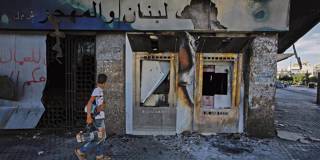It is well known that factionalism and corruption have long stood in the way of the kinds of structural reforms that Lebanon needs. But an overlooked problem is the inaction of foreign powers that could easily compel domestic changes if they had the right incentives.
OXFORD – Lebanon’s political economy is gridlocked. The country’s political leaders will not commit to the kinds of economic reforms that it needs, because doing so would undermine their own power. For good reason, most published analyses of Lebanon include references to problems such as corruption and institutional decadence. But what most commentaries miss is the role played by external stakeholders who see little reason to push for changes to the dysfunctional status quo.

OXFORD – Lebanon’s political economy is gridlocked. The country’s political leaders will not commit to the kinds of economic reforms that it needs, because doing so would undermine their own power. For good reason, most published analyses of Lebanon include references to problems such as corruption and institutional decadence. But what most commentaries miss is the role played by external stakeholders who see little reason to push for changes to the dysfunctional status quo.